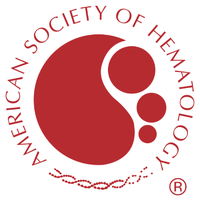Strength in Numbers: How Resistance Training Transforms Lives for Multiple Myeloma Patients
December 9, 2024, 4:42 pm

Location: United States, District of Columbia, Washington
Employees: 201-500
Founded date: 1958

Location: United States, New York, Buffalo
Employees: 1001-5000
Founded date: 1898
In the battle against cancer, every weapon counts. For patients with multiple myeloma, a type of blood cancer, a new ally has emerged: resistance training. Researchers at Roswell Park Comprehensive Cancer Center have unveiled groundbreaking findings that highlight the profound benefits of targeted exercise regimens. Their study, presented at the 66th American Society of Hematology (ASH) Annual Meeting, reveals that resistance training can significantly reduce fatigue, alleviate pain, and improve sleep quality for those grappling with this challenging disease.
Multiple myeloma often leaves patients feeling drained, both physically and emotionally. Fatigue can be a relentless foe, overshadowing daily life. However, the Roswell Park team, led by Dr. Jens Hillengass and Janine Joseph, has shown that resistance training can act as a beacon of hope. Their six-month study involved 80 patients divided into three groups: in-person supervised resistance training, virtual supervised resistance training, and unsupervised home-based walking. The results were striking.
Patients engaged in resistance training reported notable improvements in fatigue levels, pain management, and sleep quality. The in-person group experienced the most significant benefits, suggesting that the social aspect of exercise may play a crucial role in enhancing outcomes. It’s as if the weights lifted not only strengthened their muscles but also their spirits.
The findings challenge the long-held belief that physical activity poses risks for those with multiple myeloma. Instead, the research underscores the importance of integrating exercise into cancer care. This is not just about survival; it’s about enhancing the quality of life. The study’s results advocate for a holistic approach to treatment, one that empowers patients to take control of their health.
However, the journey doesn’t end with the study. Maintaining these benefits post-intervention is a challenge. The researchers emphasize the need for strategies that encourage sustainable lifestyle changes. It’s not enough to lift weights for a few months; the goal is to foster a long-term commitment to health and wellness.
The implications of this research extend beyond individual patients. It calls for a shift in how healthcare providers view exercise in cancer treatment. The stigma surrounding physical activity for patients with compromised health must be dismantled. Instead, exercise should be seen as a vital component of recovery and rehabilitation.
The study also builds on previous work by Dr. Hillengass and his team, which demonstrated that physical activity could enhance immune health and overall physical function in multiple myeloma patients. This cumulative research paints a clearer picture of the multifaceted benefits of exercise. It’s not just about lifting weights; it’s about lifting spirits and restoring hope.
As the Roswell Park team prepares to present their findings, they highlight the dedication of patients and clinic staff who made this research possible. Their commitment is a testament to the resilience of the human spirit in the face of adversity. Each patient’s journey is unique, yet they share a common goal: to reclaim their lives from the grips of cancer.
The presentation at the ASH meeting is not just an academic exercise; it’s a call to action. Healthcare providers, researchers, and patients alike must recognize the potential of resistance training as a therapeutic tool. The evidence is clear: exercise can be a powerful ally in the fight against multiple myeloma.
In a world where cancer often feels like an insurmountable mountain, resistance training offers a foothold. It empowers patients to climb higher, to push through the fatigue, and to reclaim their lives. The journey may be fraught with challenges, but with each lift, each step, patients can find strength they never knew they had.
As the research continues, the hope is that more patients will embrace this approach. Exercise should not be viewed as an optional add-on but as an essential part of cancer care. The time has come to rewrite the narrative around physical activity and cancer treatment.
In conclusion, the findings from Roswell Park Comprehensive Cancer Center illuminate a path forward. Resistance training is not just about building muscle; it’s about building resilience. It’s about transforming lives and redefining what it means to live with cancer. As we move forward, let us champion the integration of exercise into cancer care, ensuring that every patient has the opportunity to lift themselves up, both physically and emotionally. The fight against multiple myeloma is far from over, but with resistance training, patients can find strength in numbers and hope in every rep.
Multiple myeloma often leaves patients feeling drained, both physically and emotionally. Fatigue can be a relentless foe, overshadowing daily life. However, the Roswell Park team, led by Dr. Jens Hillengass and Janine Joseph, has shown that resistance training can act as a beacon of hope. Their six-month study involved 80 patients divided into three groups: in-person supervised resistance training, virtual supervised resistance training, and unsupervised home-based walking. The results were striking.
Patients engaged in resistance training reported notable improvements in fatigue levels, pain management, and sleep quality. The in-person group experienced the most significant benefits, suggesting that the social aspect of exercise may play a crucial role in enhancing outcomes. It’s as if the weights lifted not only strengthened their muscles but also their spirits.
The findings challenge the long-held belief that physical activity poses risks for those with multiple myeloma. Instead, the research underscores the importance of integrating exercise into cancer care. This is not just about survival; it’s about enhancing the quality of life. The study’s results advocate for a holistic approach to treatment, one that empowers patients to take control of their health.
However, the journey doesn’t end with the study. Maintaining these benefits post-intervention is a challenge. The researchers emphasize the need for strategies that encourage sustainable lifestyle changes. It’s not enough to lift weights for a few months; the goal is to foster a long-term commitment to health and wellness.
The implications of this research extend beyond individual patients. It calls for a shift in how healthcare providers view exercise in cancer treatment. The stigma surrounding physical activity for patients with compromised health must be dismantled. Instead, exercise should be seen as a vital component of recovery and rehabilitation.
The study also builds on previous work by Dr. Hillengass and his team, which demonstrated that physical activity could enhance immune health and overall physical function in multiple myeloma patients. This cumulative research paints a clearer picture of the multifaceted benefits of exercise. It’s not just about lifting weights; it’s about lifting spirits and restoring hope.
As the Roswell Park team prepares to present their findings, they highlight the dedication of patients and clinic staff who made this research possible. Their commitment is a testament to the resilience of the human spirit in the face of adversity. Each patient’s journey is unique, yet they share a common goal: to reclaim their lives from the grips of cancer.
The presentation at the ASH meeting is not just an academic exercise; it’s a call to action. Healthcare providers, researchers, and patients alike must recognize the potential of resistance training as a therapeutic tool. The evidence is clear: exercise can be a powerful ally in the fight against multiple myeloma.
In a world where cancer often feels like an insurmountable mountain, resistance training offers a foothold. It empowers patients to climb higher, to push through the fatigue, and to reclaim their lives. The journey may be fraught with challenges, but with each lift, each step, patients can find strength they never knew they had.
As the research continues, the hope is that more patients will embrace this approach. Exercise should not be viewed as an optional add-on but as an essential part of cancer care. The time has come to rewrite the narrative around physical activity and cancer treatment.
In conclusion, the findings from Roswell Park Comprehensive Cancer Center illuminate a path forward. Resistance training is not just about building muscle; it’s about building resilience. It’s about transforming lives and redefining what it means to live with cancer. As we move forward, let us champion the integration of exercise into cancer care, ensuring that every patient has the opportunity to lift themselves up, both physically and emotionally. The fight against multiple myeloma is far from over, but with resistance training, patients can find strength in numbers and hope in every rep.